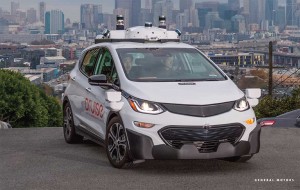
VW's new CEO Herbert Diess is pushing to cut costs and accelerate the development of new technologies.
Volkswagen’s pending partnership with Didi Chuxing to build and maintain a fleet of vehicles not only gives the Chinese behemoth a tighter grip on the ride-share market in its home country, it will accelerate VW’s development of autonomous vehicles.
As part of the deal, which is expected to be finalized next month, the German automaker will initially manage a fleet of about 100,000 new vehicles for Didi, of which two-thirds will be Volkswagen Group cars, according to Reuters.
Volkswagen will also be part of an alliance of 31 companies, including Toyota and Renault-Nissan-Mitsubishi, to develop cheap, electrified vehicles for China.
Unsurprisingly, the use of ride-sharing services in China is on the rise. It allows residents of large, congested cities like Beijing and Shanghai to run errands and get to places without the expense of vehicle ownership.
(VW showing tech prowess with Pikes Peak racer. Click Here for the story.)
While this has been predicted to occur in other countries with ride-sharing, such as the U.S., it was expected to take a long time to occur. In China, the consequences already appear to be harmful for existing carmakers, forcing companies like Volkswagen to reinvent their businesses and seek out future revenue streams.
Fortunately for VW, the automaker does get a major benefit in this new deal — unfettered access to data on customer behavior. Didi provides more than 3 million rides daily and this information can be used to accelerate the development of VW’s autonomous vehicle program.
The goal of ride-sharing companies like Didi and in the U.S. Uber and Lyft was to eventually develop self-driving vehicles. Although VW has been pushing hard on the electric vehicle front, it’s been behind the curve on autonomous vehicles.
(Click Here for more details about Diess taking over at VW.)
However, it’s not only seeing it needs to focus heavily on self-driving vehicles, VW officials know they need to spend heavily too. The company, according to Reuters, has about $18 billion dedicated to autonomous vehicles.
Some of that will be used for investments in ride-hailing, autonomous driving, digitalization, electric mobility and other services in China by 2022, the news service noted. It has already invested in an artificial intelligence firm called Mobvoi, a car-sharing company Shouqi and a second-hand car buying company.
It’s likely that is just the beginning of a spending spree that should have U.S. makers like GM, Ford and Tesla and other luxury foreign makers like Mercedes-Benz and BMW, concerned. Because once Volkswagen has access to customer data, its learning curve is going to get steep.
(Big changes coming at VW says new CEO. Click Here for the story.)
As previously mentioned, it will have access to more than 3 million miles of daily data to aid in the development of self-driving technology, and that’s without developing any new alliances like Detroit makers and other companies have.

